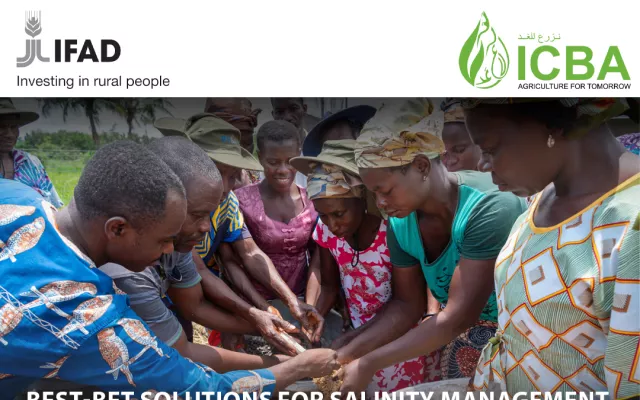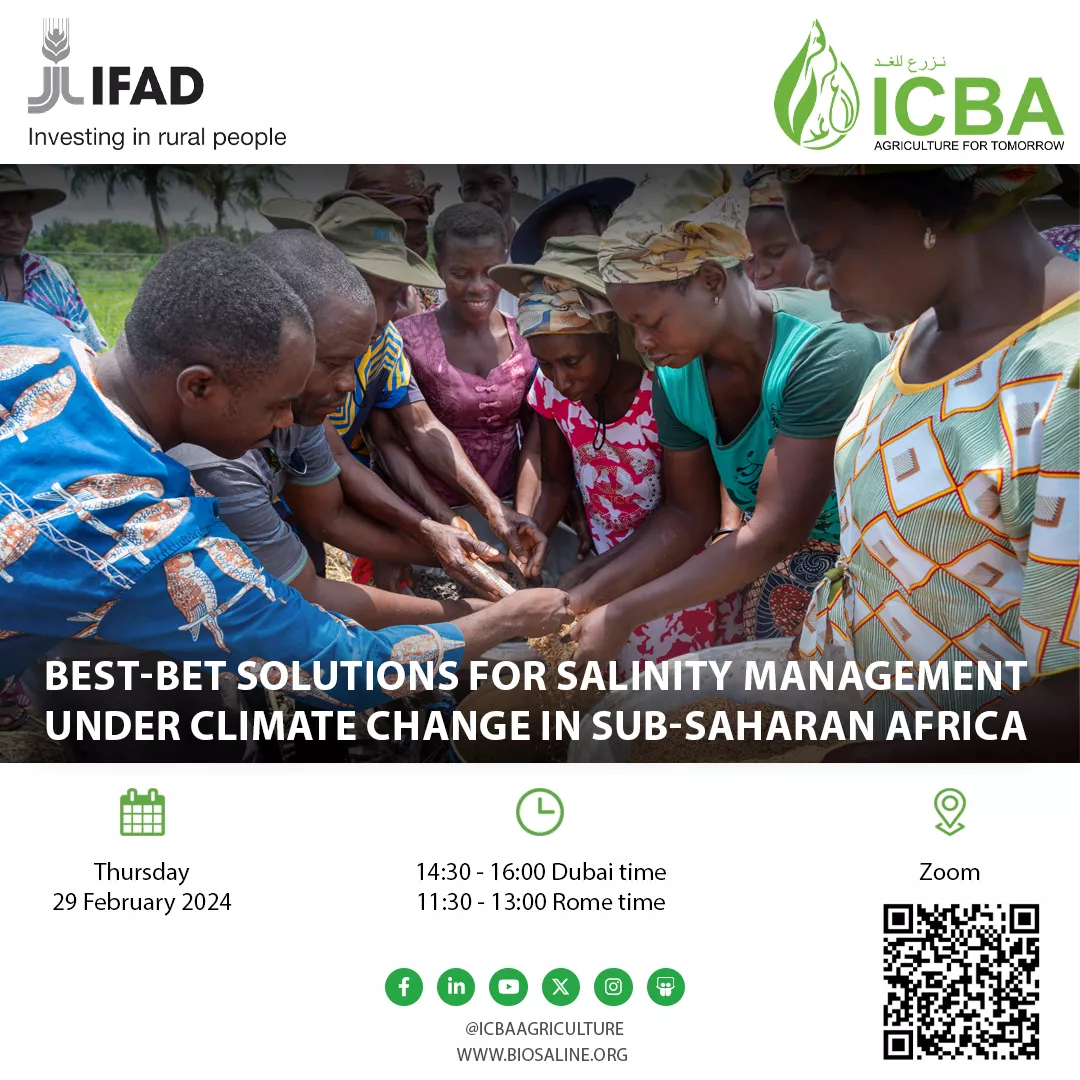Best-bet Solutions for Salinity Management under Climate Change in sub-Saharan Africa
Background
Soil salinity is a major constraint on agriculture in parts of the world often characterized by water scarcity, drought, and other unfavorable factors. Globally, 1.128 billion hectares of land is degraded by salinity and sodicity to varying degrees, with the Middle East and North Africa having the largest area of salt-affected land, or roughly 34 percent of the total. Other regions like sub-Saharan Africa and Central Asia also face similar challenges with agricultural productivity increasingly constrained due to salt-related stress. And such crop losses are expected to rise due to climate change impact and inappropriate water management. For instance, sub-Saharan Africa is estimated to have over 19 million hectares of salt-degraded land. As these regions are experiencing steady population growth and increased food demand, it is important to mitigate and manage salinity to reduce its effects on agriculture and, by extension, food security, especially in the face of climate change.
RESADE project
In the spirit of South-South triangular cooperation, the International Center for Biosaline Agriculture (ICBA), with the support of the International Fund for Agricultural Development (IFAD) and the Arab Bank for Economic Development in Africa (BADEA), is testing and promoting the adoption of salt-tolerant and climate-resilient crops in combination with improved agronomic practices and sustainable irrigation practices. Such evidence-based solutions have already proved their effectiveness in other geographical contexts and are now being introduced in Sub-Saharan Africa. This is the rationale behind the “The Improving Agricultural Resilience to Salinity through Development and Promotion of Pro-poor Technologies” (RESADE) project, which has been implemented by ICBA since 2019 in Botswana, The Gambia, Liberia, Namibia, Mozambique, Sierra Leone, and Togo.
Objectives of the webinar
The webinar will discuss how salinity can be better mitigated and managed in different parts of the world, including sub-Saharan Africa, using RESADE as a case study. ICBA and its partners will present and review the key successes and lessons learned from the project and will showcase best-bet solutions designed to help small-scale farmers in salt-affected areas adopt new approaches that can increase their yields and incomes while building their adaptive capacity to climate change. The webinar will also look at how technical innovations for effective salinity and water management can inform the policy dialogue and culminate in the development of policy options.
Expected outputs
The webinar will disseminate technical knowledge on good agronomic practices and drought- and salinity-tolerant crops that can be introduced in areas where the land is degraded by salinity and sodicity. As a learning event, the webinar will provide development practitioners with an opportunity to observe the application of such technologies in actual project contexts. The speakers will emphasize how development projects can benefit from said innovations replicating and out-scaling the approaches tested under RESADE in Sub-Saharan Africa. In addition, the webinar will encourage the use of the policy recommendations emanating from the policy analysis conducted under the project to reflect on the nexus between drought, salinity and water management and the role of public stakeholders.
Agenda
| Time | Session title | Speaker |
| 14:30-14:35 | Welcome remarks | Dr. Augusto Becerra Lopez-Lavalle, Chief Scientist, ICBA, UAE |
| 14:35-14:40 | IFAD Remarks | Dr. Sara Savastano, Director of Research and Impact Assessment Division, IFAD |
| 14:40-14:45 | BADEA Remarks | Ms. Lubna Dafalla, Expert at BADEA |
| 14:45-14:55 | RESADE: Overview, Successes, and Lessons Learned | Dr. R. K. Singh, Program Leader on Crop Diversification and Genetics, ICBA, UAE |
| 14:55-15:00 | Innovative Solutions and Sustainable Practices: The Key to Positive Transformation in Smallholder Communities | Dr. James S. Dolo, Central Agricultural Research Institute (CARI), Liberia |
| 15:00-15:25 | Deep diving into the functioning of a Best Practice Hub | Dr. Chantal Goto, Lab Director and Research Coordinator, ITRA, Togo |
| Exploring the possible benefits of innovation at scale for Mozambique | Mr. Sancho Cumbi, Project Officer, PROCAVA, Mozambique | |
| Lessons learned from IFAD’s experience in South-East Asia | Dr. Robert Delve, Lead Technical Specialist in Agronomy, IFAD | |
| Value chain development for climate-smart crops | Ms. Lubna Dafalla, Expert at BADEA | |
| The centrality of water in the fight against salinity and climate change |
Mr. Ougfaly Badji, Lead Global Food Security Specialist, IsDB
Mr. Bakhodir Mirzaev, Senior Global Water & Sanitation Specialist, IsDB |
|
| 15:25-15:55 | Q&A | |
| 15:55-16:00 | Concluding remarks | Dr. Augusto Becerra Lopez-Lavalle, Chief Scientist, ICBA, UAE |










